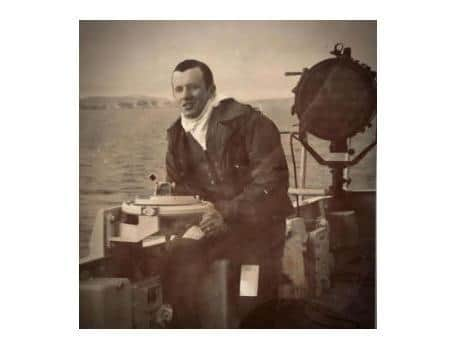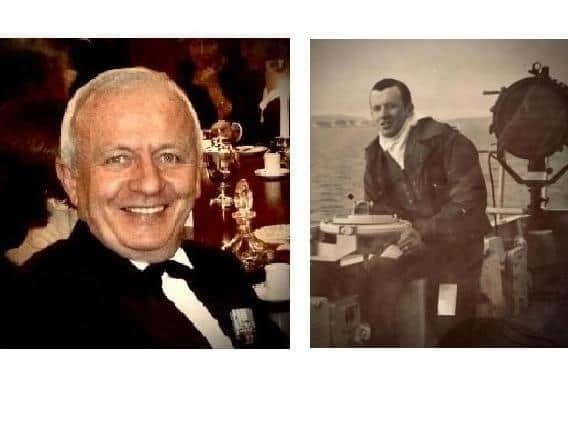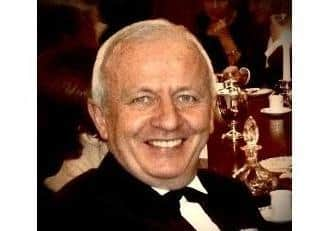Rushden Falklands Conflict veterans plan anniversary return to former theatre of war
and live on Freeview channel 276
Rushden veterans of the conflict between the UK and Argentina over the sovereignty of the Falkland Islands are planning return to the South Atlantic to 'lay to rest' ghosts of the past.
Members of the Rushden & District Royal Naval Association (RNA) are planning to return to the scene of the 74-day undeclared war with Argentina for the first time on the 40th anniversary of the conflict.
Advertisement
Hide AdAdvertisement
Hide AdOne of the returning service personnel making the 8,000 mile pilgrimage will be former naval helicopter pilot Paul McKay who served for more than five years flying in the South Atlantic and Antarctica - the most challenging flying of his naval career.


Paul said: “It started as no more than a diplomatic storm in a teacup over scrap metal workers landing on South Georgia but by Easter of April 1982, two countries went to war.
"One country played a significant role in the economic development of the other and both had a keen competitive interest in rugby union, polo and football.”
"The war was Britain’s last imperious frontier escapade, audaciously won on a battlefield 8,000 miles from home. The fleet, a size not seen since the Second World War, sailed at the start of an early British summer across the equator to the start of an Antarctic winter.
Advertisement
Hide AdAdvertisement
Hide Ad"Our average age was 23 when we were sent to fight. It was a desolate time, thousands of men travelling in various degrees of discomfort in filthy weather."


Argentine troops invaded the Falklands on April 2, rapidly overcoming the small garrison of British marines seizing the associated island of South Georgia the next day.
By late April Argentina had stationed more than 10,000 troops on the Falklands. Heading to the other side of the world were 62 civilian vessels supported by 43 Royal Navy warships and 22 Royal Fleet Auxiliary. The British landed unopposed on May 21, but the Argentine defenders put up an effective resistance, resulting in heavy fighting involving the air, land and sea forces.
By the end of the conflict on the British side 777 were wounded, 258 killed including 3 female civilians. The Argentinians announced 649 of their personnel had been killed.
Advertisement
Hide AdAdvertisement
Hide AdThe conflict lasted 74 days and ended with an Argentine surrender on June 14, returning the islands to British control.


Paul added: “There will be a few ghosts to lay to rest from a close-run campaign in which we lost shipmates but our main purpose is to bring back a news story relevant to today’s Rushden & District community.
"The RNA is a family, we are all about companionship, resilience, comradeship and unity to anyone and everyone, supporting them through life's highs and lows."
RNA membership offers access to 270 branches across the United Kingdom and overseas to provide camaraderie and access to its welfare advice and signposting, lifestyle, travel, retail discounts and news from around the membership and wider Naval Service.
To become a member of the 'family' of current and former Naval Service Personnel, relatives, and supporters of the Rushden & District RNA click here. Membership is currently free.